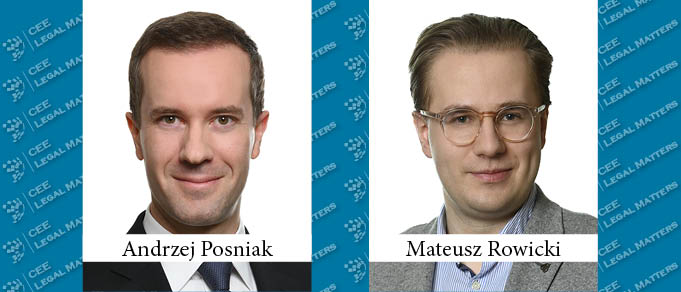The taxation of dividends in Poland is a complex issue. Moreover, relevant regulations have recently been changed as part of a wider 2022 tax reform.
In general, income from dividends is subject to a 19% corporate income tax (CIT) rate. Dividends paid by Polish companies to foreign shareholders are also subject to a 19% withholding tax rate. Naturally, the withholding tax applies only if the provisions of a double tax treaty or the Polish regulations implementing the so-called EU Parent-Subsidiary Directive do not provide otherwise.
Withholding Tax
In 2019, Polish withholding tax regulations were amended and now expressly require a Polish company making payments to exercise due diligence when assessing whether the recipient of the payment is entitled to rely on the provisions of the double tax treaty or another exemption. 2022 has brought further changes in the regulations concerning this mechanism and with them further issues for taxpayers. They will mainly affect those companies that make payments subject to withholding tax in amounts exceeding PLN 2 million in a tax year to related parties.
If such payment exceeds PLN 2 million, the Polish company making the payment should disregard the regulations providing for an exemption from the withholding tax or the application of a lower withholding tax rate (e.g. the provisions of a double tax treaty) and instead pay the tax to the tax office. Subsequently, the withholding tax will be refunded to the foreign party. The above regulations will not apply if the Polish company provides the tax office with a statement confirming that the company is in possession of documents allowing it to apply a withholding tax exemption or a lower withholding tax rate and that the company does not have any information that would suggest that the exemption or lower rate should not be applied. Providing a statement that turns out to be false may result in a criminal fiscal penalty for the signatories and an additional tax obligation for the company. Alternatively, it is possible to request an opinion from the tax authorities confirming the application of the exemption or lower withholding tax rate. The opinion is valid for 36 months and should be issued within six months from the date of the application.
Holding Company
Apart from the changes to the withholding tax regulations, the 2022 tax reform has also introduced the concept of a Polish holding company.
These regulations may be beneficial for potential investors owning holding companies in Poland. The new regulations provide for an exemption of the dividends received by the holding company from the subsidiary, with the exemption covering 95% of the dividends, even if the subsidiary is not located in Poland. The remaining part of the dividends will be subject to CIT in Poland according to the general 19% CIT rate. Additionally, there is an exemption applied to income obtained by the holding company from the paid disposal of shares in the subsidiary, but only for transactions with unrelated entities.
To obtain the status of a holding company, the company must meet several criteria, e.g., the holding company must directly own no less than 10% of the shares of its subsidiary continuously for at least one year, and the subsidiary companies cannot own more than 5% of the shares in other companies. The preference applies to single-tier structures.
How Will the New Regulations Affect the Influx of New Investors to Poland?
Certainly, when paying dividends abroad, investors will have to check whether they have exceeded the limit of PLN 2 million during the year and, if that is the case, they will be obliged to pay tax or meet additional conditions, which may be burdensome.
It is not clear what are the reasons behind the introduction of certain limitations in the application of the holding company regime – e.g., why can a subsidiary not own more than 5% of the shares of another company?
It seems, however, that the direction of the new regulations is favorable and should induce investors to start considering Poland as a country where holding activity can be developed. It appears that, in terms of the dividend exemption, the new tax regime may be attractive for holding companies that have subsidiaries in countries outside the European Union and the European Economic Area.
By Andrzej Posniak, Managing Partner, and Mateusz Rowicki, Lawyer, CMS
This article was written before the advent of the war in Ukraine and was originally published in Issue 9.2 of the CEE Legal Matters Magazine on March 1, 2022. More current articles on developments in Ukraine can be found in our #StandWithUkraine section. If you would like to receive a hard copy of the magazine, you can subscribe here.















